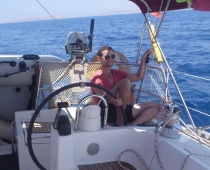Knowing that I’m always keen to devour anything related to personal development or business my wonderful wife Susie bought me “The Leadership Challenge” for Christmas.
Early on in the book Kouzes and Posner put forward the characteristics of admired leaders based on studies they’ve conducted asking leaders’ constituents to describe what they look for in a leader they would be most willing to follow. Over numerous studies four characteristics continue to stand out:
- Honesty
- Forward-thinking
- Competent
- Inspiring
I think that this list is a great tool for self evaluation purposes. If you are reflecting on something that occurred and wondering whether you lead the situation well then you can quickly evaluate yourself against these four characteristics.
I caution against using it as a list of “things that I must do to be a good leader” because it lists the symptoms or effects of the character, passion, commitment, beliefs and understanding operating on a deeper level. For example, a reader could take this as “well if I just act forward-thinking then I can lead people.” I personally believe that you must be forward thinking and being forward thinking comes from a deep interest in and understanding of the area you are leading people through. Similarly, a reader of the book might be tempted to think “well if I just act inspiringly then people will follow me.” But you can’t inspire others if you aren’t inspired yourself; when you are inspired yourself, that will just rub off on others. If you are looking to exhibit the characteristics that people look for in a leader then you need to look under the covers.





